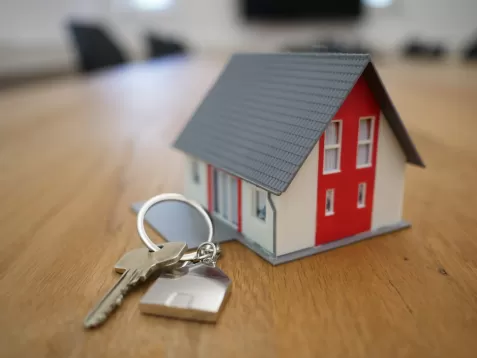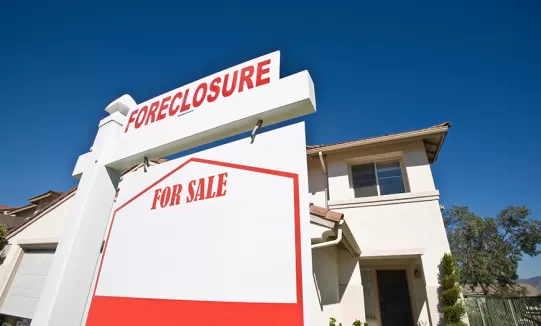We’re not going to mince words. The Recession was like a swift kick to the stomach. Maybe lower. At one time, Nevada earned its title as the Foreclosure Capital of America with 1 in 16 homes filing for foreclosure, compared to the national average of 1 in 69 according to CNN Money. Thankfully, Nevada is on its way to recovery. We even ditched our unsolicited title.
If you’re like the millions of Americans who lost their homes during the economic recession, it may be time to consider buying a home again. Why, you ask? While a foreclosure is a considerable demerit to a credit score—one that lingers for seven years, it isn’t all bad news. According to myFICO.com, a website operated by the credit monitoring company that publishes the FICO score, “It's a common misconception that [a foreclosure] will ruin your score for a very long time. In fact, if you keep all of your other credit obligations in good standing, your FICO score can begin to rebound in as little as two years.”
Many Nevadans were able to avoid foreclosure by going the short sale route. A short sale can still negatively affect a credit report depending on how it is reported by the mortgage company, but it is generally not as unfavorable on a person’s credit score as a foreclosure. A short sale is typically reported as “settled” with the remainder of the loan being written off as a loss by the creditor, according to Experian, a credit reporting company.
A handful of years after the Recession, the economy is finally on the rise. Multiple technology and manufacturing companies are relocating to the Silver State, bringing jobs and opportunity with them. Unemployment is down to 6.4 percent in Nevada as of December 2015. Those who lost their jobs are beginning again in new careers. And with mortgage interest rates still near historic lows, the idea of buying a home is again becoming a reality even for those who lost their homes during the Recession.
Northern Nevada resident Jackie Shelton is a good example of a homebuyer starting over. She short sold her home in 2010 near the height of the recession. Shelton’s home had depreciated in value by 48 percent from when she first purchased the property in 2004. “When I bought my first home, I didn’t even know housing prices could go down,” explained Shelton, a single mother who works in communications. Due to a failing business, Shelton started missing mortgage payments. “Once you miss a mortgage payment, it’s almost impossible to catch up,” she said. “I think I missed a total of three. I did the math and after the penalties and additional payments that were accruing, it would take me 17 years to close the gap.” With that math, Shelton decided to short sell her home to avoid the damage a potential foreclosure would have on her credit score.
Lenders and mortgage companies certainly learned their lesson after the housing fiasco of the Recession. Buying a home isn’t what it used to be. According to Bankrate, a consumer financial services company, “The FHA [Federal Housing Authority] requires a down payment of at least 3.5 percent of the purchase price. The minimum down payment for a conforming loan without mortgage insurance is 20 percent.”
And now for the happy ever after. In 2015, Shelton was both able and excited to re-enter the housing market. “I see the value of homeownership and owning a home is important to me,” said Shelton. “I want a permanent place for my kids—something they can come home to, not something that we’re in for a few years and then move somewhere else.”
If you’re ready to start the homebuying process again, the best place to start is with a HUD approved counselor or loan specialist. The loan specialist can offer insight into the money required to purchase a home and the amount you should expect to pay at closing. Loan specialists can help you navigate any remaining loan issues from a foreclosure or short sale. Lenders who are approved by Nevada Housing Division can determine if you qualify for the State of Nevada-backed homebuying programs designed to help low and middle income Nevadans. By staying proactive and keeping a close eye on your credit score, you absolutely can come home again.


